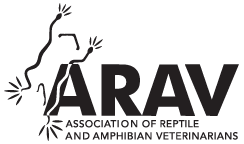Cardiopulmonary Effects and Efficacy of Propofol as an Anesthetic Agent in Brown Tree Snakes, Boiga irregularis
Nine wild-caught brown tree snakes, Boiga irregularis, were anesthetized with 5 mg/kg of propofol. Mean duration of anesthesia was 24 minutes. Eight of nine the snakes experienced 30 to 60 seconds of self-limiting apnea immediately following propofol injection. Two of the nine snakes failed to achieve a surgical level of anesthesia, as assessed by positive response to tail and vent pinch. Only mild changes in heart rate, cardiac blood gases, ETCO2, and SpO2 were observed. The magnitude of these changes were small, which correlated with smooth, uncomplicated anesthesias experienced by all study snakes. Propofol appears to be a safe and effective anesthetic for restraint or minor procedures in brown tree snakes. Standard techniques used to monitor heart and respiratory rates should be adequate to assess cardiopulmonary status of healthy brown tree snakes anesthetized with a single 5 mg/kg bolus of propofol.ABSTRACT



